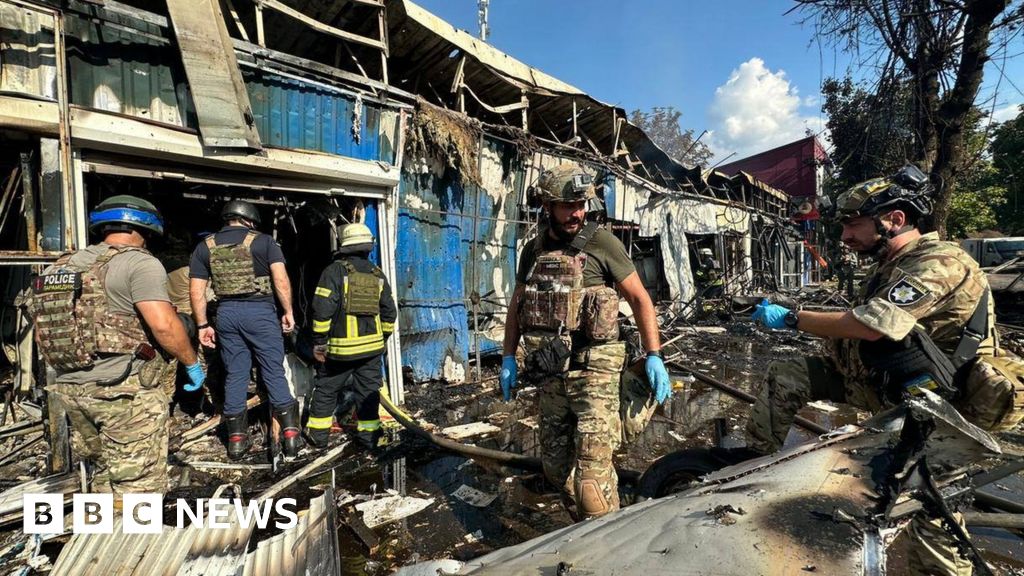Εμπεριστατωμενη αναλυση (οπως παντα) για την αποτυχημενη αντεπιθεση.

Στο τελος προβλεψη για το τι θα ακολουθησει ...
THE DARKNESS AHEAD
What happens next? Two points are in order.
First, there will be a blame game in the months ahead regarding who bears responsibility for the disastrous counteroffensive. Indeed, it has already started.[61] Few will admit that they were wrong to think the counteroffensive stood a reasonable chance of succeeding or was sure to succeed. That will certainly be true in the US, where accountability is an obsolete concept. Many Ukrainians will blame the West for pushing them to launch the blitzkrieg when the West had failed to provide them with all the weaponry they had requested. Of course, the West will be guilty as charged, but Ukrainian leaders have agency and could have stood up to American pressure. After all, their country’s survival is at stake, and they would have been better off staying on the defensive, where they would have suffered fewer casualties and increased their chances of retaining the territory that they now control.
The coming recriminations will be ugly and will hinder Ukraine’s efforts to stay in the fight against Russia.
Second, many in the West will argue that the time is now ripe for diplomacy. The failed counteroffensive shows that Ukraine cannot prevail on the battlefield, so the argument will go, and thus it makes sense to reach a peace agreement with Russia, even if Kyiv and the West must make concessions. After all, the situation will only get worse for Ukraine if the war continues.
Regrettably, there is no diplomatic solution in sight. There are irreconcilable differences between the two sides over security guarantees for Ukraine and territory, which stand in the way of a meaningful peace agreement. For understandable reasons, Ukraine is deeply committed to getting back all the land it has lost to Russia, which includes Crimea and the Donetsk, Kherson, Luhansk, and Zaporizhzhia oblasts. But Moscow has already annexed those territories and made it clear that it has no intention of returning them to Kyiv.
The other unresolvable issue concerns Ukraine’s relationship with the West. For understandable reasons, Ukraine insists that it needs a security guarantee, which can only come from the US and NATO. Russia, on the other hand, insists that Ukraine must be neutral and must end its security relationship with the West. In fact, that issue was the main cause of the present war, even if American and European foreign policy elites refuse to believe it.[62] Moscow was unwilling to tolerate Ukraine joining NATO. It is extremely difficult, if not impossible, to see how both sides can be satisfied on either the territorial or neutrality issue.
In addition to those obstacles, both sides view each other as an existential threat, which is an enormous obstacle to any kind of meaningful compromise. It is hard to imagine, for example, the US taking its gunsights off Russia in the foreseeable future. The most likely result is that that the war will go on and eventually end in a frozen conflict with Russia in possession of a significant portion of Ukrainian territory. But that outcome will not put an end to the competition and conflict between Russia and Ukraine or between Russia and the West.

Στο τελος προβλεψη για το τι θα ακολουθησει ...
THE DARKNESS AHEAD
What happens next? Two points are in order.
First, there will be a blame game in the months ahead regarding who bears responsibility for the disastrous counteroffensive. Indeed, it has already started.[61] Few will admit that they were wrong to think the counteroffensive stood a reasonable chance of succeeding or was sure to succeed. That will certainly be true in the US, where accountability is an obsolete concept. Many Ukrainians will blame the West for pushing them to launch the blitzkrieg when the West had failed to provide them with all the weaponry they had requested. Of course, the West will be guilty as charged, but Ukrainian leaders have agency and could have stood up to American pressure. After all, their country’s survival is at stake, and they would have been better off staying on the defensive, where they would have suffered fewer casualties and increased their chances of retaining the territory that they now control.
The coming recriminations will be ugly and will hinder Ukraine’s efforts to stay in the fight against Russia.
Second, many in the West will argue that the time is now ripe for diplomacy. The failed counteroffensive shows that Ukraine cannot prevail on the battlefield, so the argument will go, and thus it makes sense to reach a peace agreement with Russia, even if Kyiv and the West must make concessions. After all, the situation will only get worse for Ukraine if the war continues.
Regrettably, there is no diplomatic solution in sight. There are irreconcilable differences between the two sides over security guarantees for Ukraine and territory, which stand in the way of a meaningful peace agreement. For understandable reasons, Ukraine is deeply committed to getting back all the land it has lost to Russia, which includes Crimea and the Donetsk, Kherson, Luhansk, and Zaporizhzhia oblasts. But Moscow has already annexed those territories and made it clear that it has no intention of returning them to Kyiv.
The other unresolvable issue concerns Ukraine’s relationship with the West. For understandable reasons, Ukraine insists that it needs a security guarantee, which can only come from the US and NATO. Russia, on the other hand, insists that Ukraine must be neutral and must end its security relationship with the West. In fact, that issue was the main cause of the present war, even if American and European foreign policy elites refuse to believe it.[62] Moscow was unwilling to tolerate Ukraine joining NATO. It is extremely difficult, if not impossible, to see how both sides can be satisfied on either the territorial or neutrality issue.
In addition to those obstacles, both sides view each other as an existential threat, which is an enormous obstacle to any kind of meaningful compromise. It is hard to imagine, for example, the US taking its gunsights off Russia in the foreseeable future. The most likely result is that that the war will go on and eventually end in a frozen conflict with Russia in possession of a significant portion of Ukrainian territory. But that outcome will not put an end to the competition and conflict between Russia and Ukraine or between Russia and the West.





